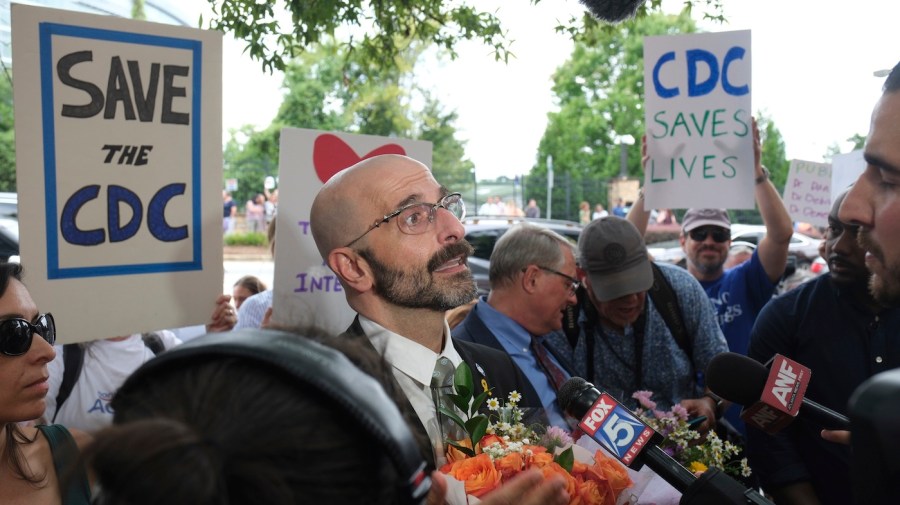Three cases of mpox clade I were recently detected in California, with all infected individuals needing to be hospitalized. Clade 1 mpox generally causes more severe illness and differs from the clade II mpox that spread among the social networks of men who have sex with men starting in 2022.
These remarks have been edited for length and clarity.
The Hill: Speaking with public health officials, I know that a chief concern among them is that data sharing and testing might be severely impacted.
Daskalakis: I think the first is, you know, there’s a government shutdown. And that is particularly problematic. As California is moving to do enhanced surveillance, CDC is sort of working in the background to be able to support such enhanced surveillance. That means, you know, recommending more testing, and then taking testing a few steps further to see if there is clade Ib that has been circulating in that area.
Without a clade I test readily available, people will do a test for a non-smallpox pox virus. When that’s positive in the U.S., that means mpox. Sometimes that goes on to a test that looks for clade II. If that test is negative, historically, what happens is they say, oh, that’s maybe clade I, which has not been very common.
The Hill: I reached out to the California Department of Public Health and they said they wouldn’t be confirming the gender or the sexuality of the people infected. There were concerns about men who have sex with men, primarily because those are people who were affected two or three years ago. Is that wise to say it’s still men who have sex with men who should be worried the most?
Daskalakis: The best defense right now is to continue working with the community that is currently recommended by that [Advisory Committee on Immunization Practices] recommendation and that, remember, doesn’t just mean men who have sex with men, but also sex workers — I mean, there’s a broad swath of folks who could potentially be involved in this.
If they cannot discern a new at-risk community, what they’re doing is enhanced investigation of these cases. And so, they’re actually then meeting folks who are exposed to these individuals and then potentially giving them vaccine.
Rose: There is still good reason to just let the community continue to get the message it’s getting. We know that there are not enough resources. We know that the vaccine works. And going back and forth on regulations and trying to figure out kind of who is in this guidance and who is not, doesn’t matter as much to me, and especially in a world where we still have an ongoing clade II outbreak in this country. There are still good reasons for everyone to get vaccinated, this just heightens the reasons.
The Hill: These cases seem to be unrelated and aren’t associated with travel. Do we have history we can look back on and say where this might have originated from?
Daskalakis: Investigations work at a speed that is not as fast as what the press or what the public may want. When you see unrelated cases or cases that are seemingly unrelated, that means that more investigation needs to happen. It could be that there will be a commonality identified with the three. It may mean that there’s more cases between point A and point B; that were mild or weren’t necessarily detected doing normal testing.
Rose: The thing I am most concerned about is this was hard. Last time, it was hard. We had a lot of coordination, and it required substantial government resources, especially in a world where the government didn’t have any money to pay for it.
We won’t have that coordination to say, hey, there’s expiring doses coming out of the National Strategic Stockpile. Does anybody want these? And so, we will still have a bunch of people who need access to vaccines who will not be able to get them because they’ll not be able to afford them. We have people who will not get messaging that they should have gotten.
Daskalakis: We were able to leverage resources that are exactly the resources that are currently on the chopping block. We leveraged STI systems, we leveraged HIV systems, we leveraged housing systems and we leveraged mental health systems to be able to do this. So, I’m concerned that if some of these cuts come to fruition, we will be very unprepared to be able to do that same leverage.
